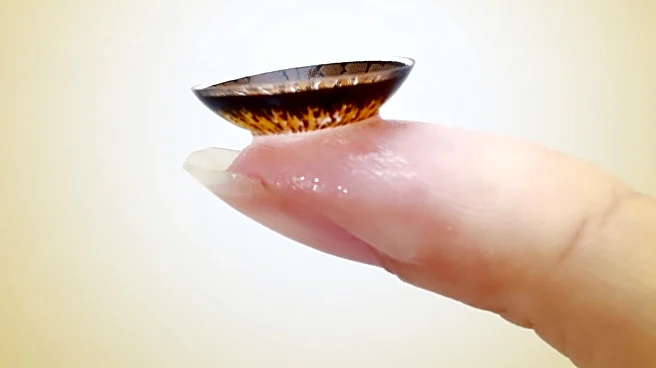What's Happening?
Japanese researchers have developed a drug that could help people grow new teeth, according to multiple peer-reviewed studies. The drug works by reactivating extra 'tooth buds' present in the mouths of most people, potentially replacing the need for implants
and dentures. The research demonstrated the drug's effectiveness in mice, with the potential for future clinical applications aimed at treating humans with congenital tooth agenesis. The drug targets the uterine sensitization-associated gene-1 (Usag-1) protein, which prevents the growth of new teeth. By blocking this protein, researchers were able to promote tooth development in mice, showing promise for human applications.
Why It's Important?
This development could revolutionize dental care, offering a natural solution to tooth loss and potentially eliminating the need for dentures and implants. The ability to regrow teeth would significantly improve the quality of life for individuals with tooth agenesis, providing a more permanent and natural solution to dental issues. The research contributes to the broader field of regenerative medicine, highlighting the potential for innovative treatments that harness the body's natural processes. If successful in human trials, this drug could transform dental care, reducing costs and improving outcomes for patients worldwide.
What's Next?
The drug is currently undergoing clinical trials in humans, with researchers optimistic about its potential applications. Future research will focus on refining the drug's efficacy and safety, ensuring it can be effectively used in human patients. If successful, the drug could be commercialized, offering a new treatment option for individuals with tooth loss. Researchers may also explore the broader applications of this approach in other areas of regenerative medicine, expanding the potential impact of this discovery. Collaboration between scientists, clinicians, and pharmaceutical companies will be essential in advancing this research and bringing the drug to market.
Beyond the Headlines
The development of a drug to regrow teeth raises ethical considerations regarding the manipulation of natural processes and the potential consequences of altering gene expression. As research progresses, discussions around the safety, efficacy, and long-term effects of this approach will be crucial. The findings also underscore the importance of interdisciplinary collaboration in advancing medical technology, combining expertise from genetics, dentistry, and pharmacology to achieve groundbreaking results. The study's implications extend beyond dental care, offering insights into the broader field of regenerative medicine and the potential for innovative treatments.














